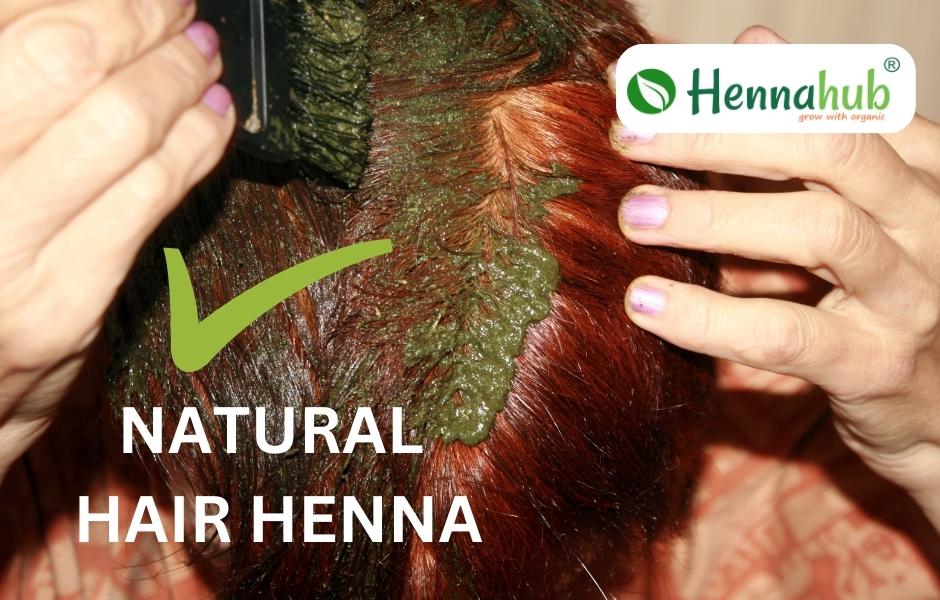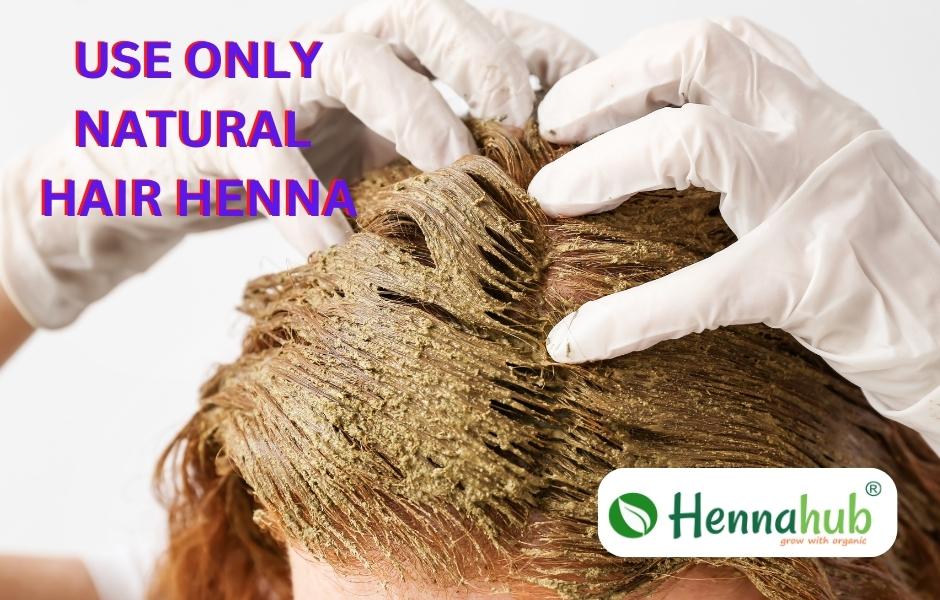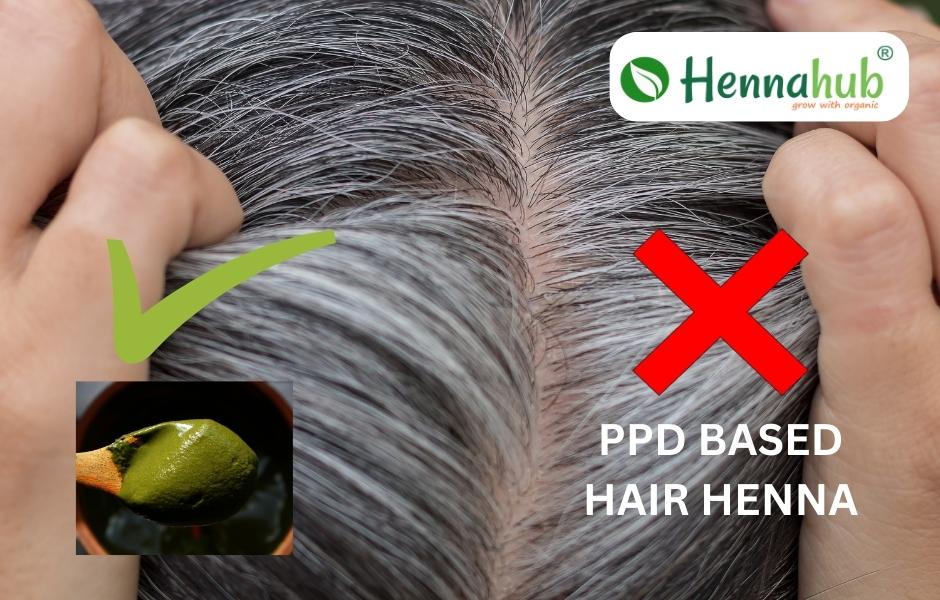Discover the difference between natural henna powder and synthetic henna powder.
Natural henna powder is derived from the leaves of the henna plant (Lawsonia inermis), while synthetic henna is a chemical compound created to imitate the colouring properties of natural henna.
Natural henna has been used for thousands of years for body art and hair dye and is considered safe for most people when used properly. The color produced by natural henna can range from light orange to dark reddish-brown, depending on the quality of the henna and the length of time it is left on the skin.

Synthetic henna, on the other hand, is often made from a mixture of chemicals, including para-phenylenediamine (PPD), which can cause skin irritation and allergic reactions in some people. The colour produced by synthetic henna is typically brighter, more intense red or black, and the effects are much shorter-lived than those of natural henna.
Here are a few more points of distinction between natural and synthetic henna:
- Ingredients: As mentioned earlier, natural henna is made from the leaves of the henna plant, while synthetic henna is a mixture of chemicals, including PPD and other colorants and preservatives.
- Color: Natural henna produces a range of reddish-brown hues, while synthetic henna typically produces brighter, more intense red or black colors.
- Application: Natural henna is applied to the skin in a paste form and can take several hours to dry, while synthetic henna is often sold in a ready-to-use form and dries much more quickly.
- Durability: The color produced by natural henna can last for several weeks on the skin and several months on the hair, while the color produced by synthetic henna typically fades much more quickly.
- Allergic reactions: Natural henna is generally considered safe for most people, but some individuals may experience mild skin irritation or an allergic reaction. Synthetic henna, on the other hand, is known to cause skin irritation and severe allergic reactions in some individuals, including itching, blistering, and scarring.

It’s important to note that while natural henna is generally considered safe, it is still possible to have an adverse reaction to it. If you have sensitive skin or are prone to allergies, it’s a good idea to perform a patch test before using henna, whether it is natural or synthetic.
In summary, natural henna is a natural plant product that has been used safely for centuries, while synthetic henna is a chemical imitation that can be more hazardous to use. If you are considering using henna, it is recommended that you choose a reputable source of natural henna to ensure the highest quality and safety.
Try out Best Henna Powder: Shop Now
Buy Henna Powder in Bulk: Click here
FAQ ABOUT SYNTHETIC HENNA
1. Is natural henna more expensive than synthetic henna?
In general, natural henna is more expensive than synthetic henna, due to the time and labor involved in growing and harvesting the henna plant and processing the leaves into a fine powder. However, the long-lasting color and the absence of potentially harmful chemicals make natural henna a worthwhile investment for many people.
2. Can natural henna be used for hair dye?
Yes, natural henna can be used for hair dye, and is a popular choice for people who want a natural and safe alternative to chemical hair dyes. The color produced by natural henna can range from a light orange to a dark reddish-brown, depending on the quality of the henna and the length of time it is left on the hair.
3. Can synthetic henna cause long-term damage to the skin or hair?
Yes, synthetic henna can cause long-term damage to the skin and hair, especially if it contains high levels of PPD. In some cases, exposure to PPD can result in skin irritation, itching, blistering, and scarring, and can also cause damage to the hair follicles and hair shafts, leading to hair loss.
4. Can natural henna be used for temporary tattoos?
Yes, natural henna is often used for temporary tattoos, as it is considered safe for most people and produces a unique and long-lasting design. The paste is applied to the skin in intricate patterns and is left to dry, leaving behind a semi-permanent stain that can last for several weeks.
5. Is synthetic henna banned in some countries?
Yes, in some countries, synthetic henna containing high levels of PPD is banned due to the potential health risks it poses to users. If you are considering using henna, it is important to check the regulations in your country and only purchase henna from a reputable source to ensure the highest quality and safety.




